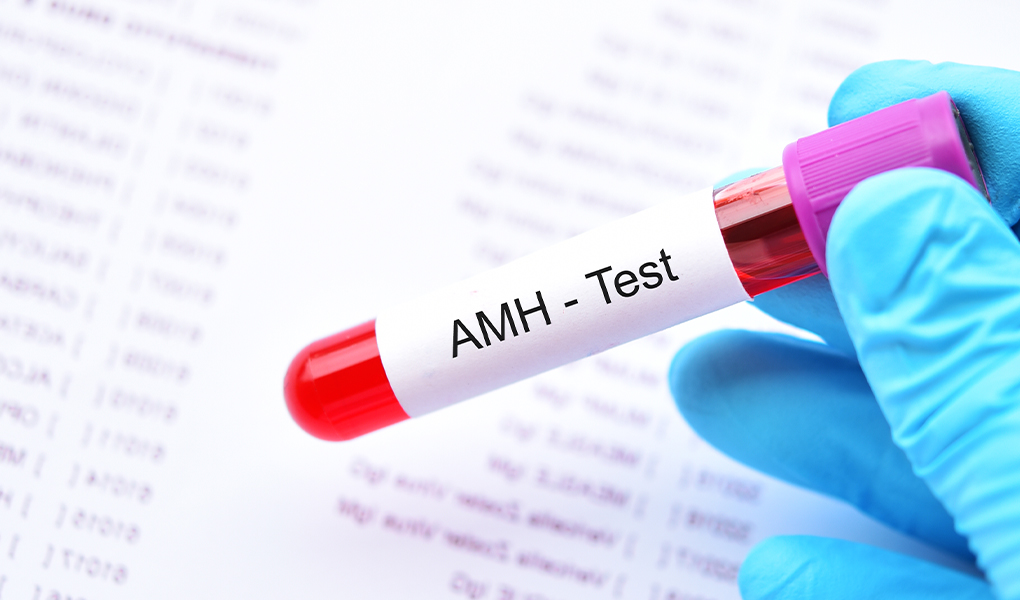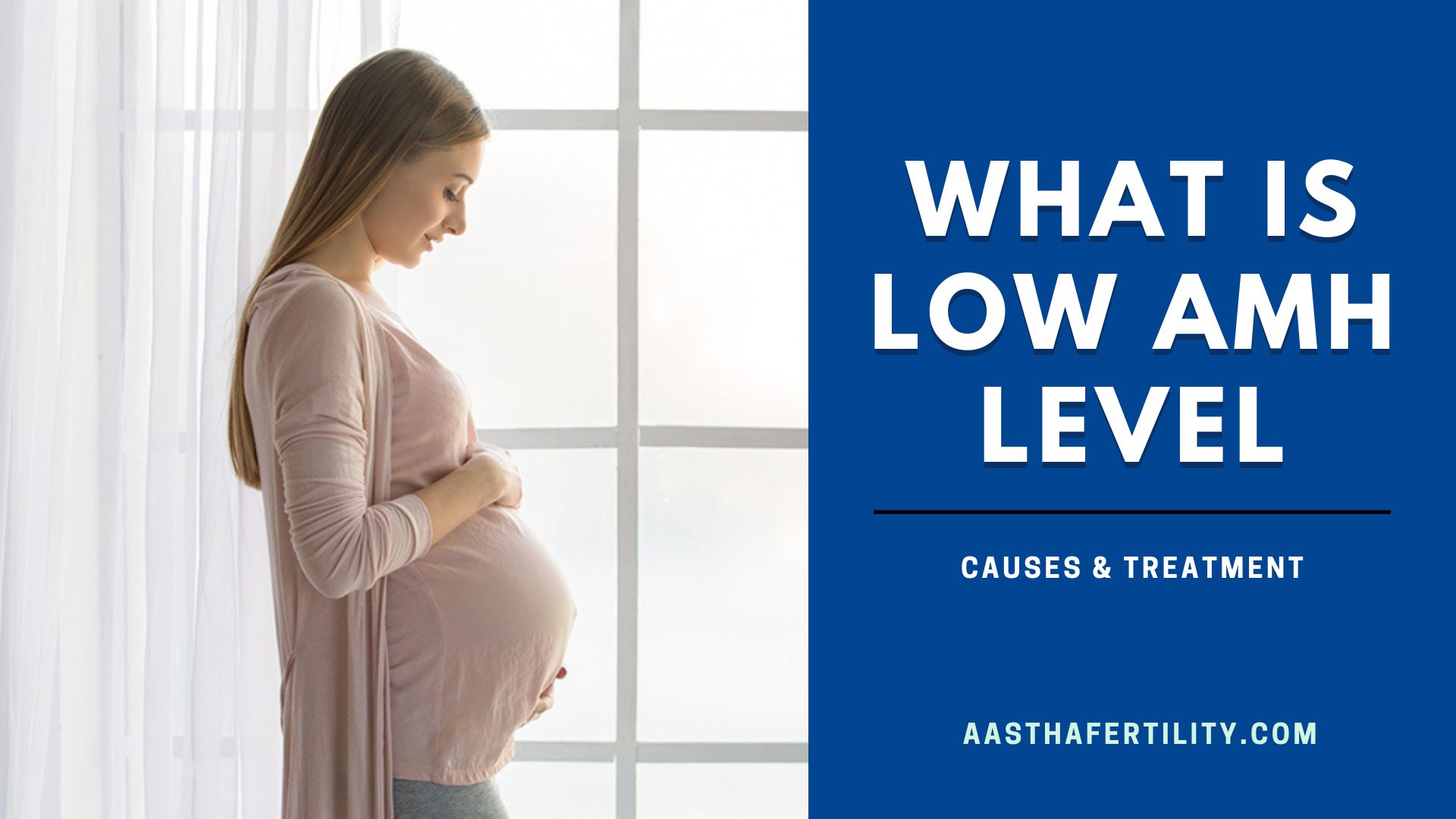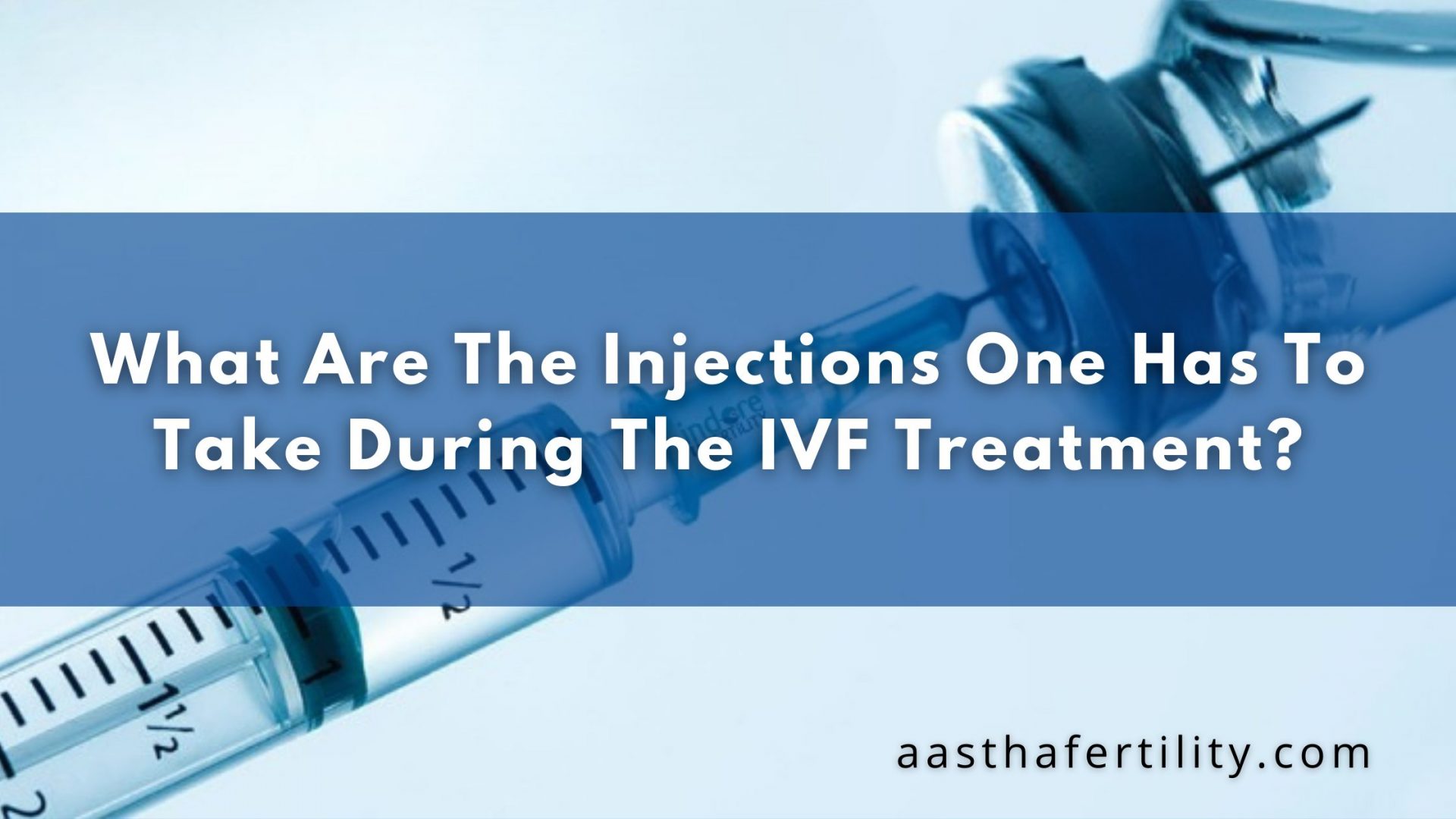Table of Contents
ToggleMen are blessed with the ability to produce an infinite number of sperms, with millions of them stored in reserve. But Women, on the other hand, are gifted with only a limited supply of eggs for a lifetime, which also tends to exhaust after a particular period of time.
The Anti-Mullerian Hormone, or AMH, levels of several females have undoubtedly been examined when you regularly follow the fertility industry. There is a misunderstanding regarding what AMH contains, even though AMH testing is frequently performed while couples attempt to get pregnant.
AMH usually measures egg quantity, though several females mistakenly connect it with the quality of egg. The hereditary production of an egg plays a role in its quality, a fact that a hormone-based analysis can’t detect. AMH testing is popular for a cause, though: it could reveal crucial details concerning ovarian reserve.
Despite the fact that most females know of the hormone, some are fully aware of its functions and what their AMH levels may reveal. AMH levels over a certain threshold may predict a reduced chance of developing ovarian cancer. Additionally, anti-mullerian hormones may indicate whether a female will succeed with IVF (in vitro fertilization).
AMH testing is a straightforward blood evaluation, making it more useful as a tool for ovarian reserve screening. All you require to learn regarding AMH levels and the information they may reveal regarding your fertility is covered in this post.
Exhaustion of all the fertile eggs in a woman reflects zero chances of conceiving naturally, as they become completely infertile after that. This usually happens with menopause, which refers to the period of a woman’s life when menstruation ceases.
Therefore, a woman needs to identify and preserve their ovarian reserve if the couple plans for a baby.
AMH (Anti Mullerian Test) therefore identifies the woman’s ovarian reserve and helps diagnose other related problems such as early menopause, low ovarian reserve, or PCOD. It will help gain some useful insights into a woman’s body, indicating her fertility duration and remaining quantity of eggs.
Sharing all the details for the AMH Test, this blog will introduce its accuracy rate and help you know the facts for how to interpret the results of this test.
What is the AMH Blood Test?

If you are planning for a baby, you need to get your ovarian reserve checked to know about your chances of conceiving naturally. AMH Blood Test will measure Anti Mullerian Hormones Level in your blood.
AMH Hormones are the reproductive tissues found in both males and females, and the levels and role played by the hormone further depend on gender and age.
The test is generally recommended for females to know the snapshot of their reproductive health.
Revealing the levels of Anti-Mullerian Hormones, the AMH test will help reveal important facts about a woman’s fertility and ovarian reserves- the number of fertile eggs left in a woman’s body.
- A higher AMH level in childbearing age means a high egg count and higher ovarian reserve.
- And a lower AMH level means a low egg count and low ovarian reserve.
Women with high ovarian reserve have an option to wait for years or months to get pregnant. But if the reserve is low, this might trouble her pregnancy process, further reflecting that she may not delay the same anymore.
Does Diagnosing Accurate AMH Levels Help in Determining IVF Success Rate?
AMH test helps to know the egg counts in females. It doesn’t tell the quality of the eggs, but retaining more eggs while IVF retrieval gives more to work. Women with high AMH serum levels have a better response to ovarian stimulation for IVF.
According to the journal of reproductive medicine AMH levels predict IVF outcomes, high AMH levels mean more eggs retrieved, a higher birth rate, and leftover embryos can be frozen. Low AMH level alone is not the cause of low IVF chances under 35 years old women.
Does AMH level affect fetus growth?
The hormone plays a vital role in the baby’s sex organ development inside the womb. The higher level of AMH in unborn male babies prevents the growth of female organs.
In the unborn female baby, a low level of AMH is produced for the development of female reproductive organs.
Although, the AMH levels play a different role for females after puberty.
AMH Test Uses
- Check Women’s capabilities of producing eggs (count and quality)
- Helps to know potential egg cells left in the female body
- Predict the start of menopause
- The reason for early menopause
- Why the menstrual cycle is irregular or delayed
- diagnose PCOS
- and monitor certain types of ovarian cancer
Role of AMH Test
Follicles, which resemble pouch-like chambers and hold growing eggs or oocytes, are located inside the ovaries (eggs). A female has each of the eggs she will require after her birth, and the follicles release a single mature egg into each of the two fallopian tubes throughout the typical menstrual cycle of twenty-eight days.
A fertility expert can assess a woman’s reproductive potential by knowing how many available follicles. Doctors may utilize the findings of blood testing to determine the egg supply because primordial and extremely immature ovarian follicles produce AMH.
Other Names for the AMH Test
The other name prevailing for AMH tests across the globe are MIH, MIF, MIS, AMH hormone test, müllerian inhibiting factor, müllerian-inhibiting hormone, and müllerian-inhibiting substance
The test is available at very affordable rates, starting from 700 to 2000 INR. (Price May Be fluctuate).
How to Interpret the AMH Result?
Values in the AMH test will help reveal whether the woman is fit for being pregnant or if she needs to take some steps. These, therefore, reflect the size of ovarian reserve or the remaining egg supply.
Some problems evolve while interpreting the AMH hormone levels. These occur because the test was not routine for the past many years, and the AMH normal levels have still not gained much clarity and agreement from all the experts.
AMH levels do not give any idea about egg quality, but an increased or more ovarian reserve will provide a better and positive response to IVF or ovarian stimulation.
- High AMH levels refer to low cancellation chances, higher live birth rates, more eggs retrieval, and increased chances of embryo freezing.
- Low AMH levels, therefore, decrease IVF success rates, but it does not say that the couple does not attempt the same.
Extracted from fertility literature, these mentioned AMH levels will help you with the interpretation guidelines-
| Very Low | Less than 0.5ml / ng. |
| Low | 0.5 – 1.00 ml/ng. |
| Low Normal Range | 1.00 – 1.5 ml/ng. |
| Normal | 1.5 – 4.00 ml/ng. |
| High (PCOS) | Over 4.00 ng/ml. |
Good AMH Levels According to Age
You may see decreased AMH levels as you age; it’s natural. They intend to reduce with age. The following levels represent a lower spectrum of AMH for
respective ages.
- 25 years old: 3.0 ng/mL
- 30 years old: 2.5 ng/mL
- 35 years old: 1.5 ng/mL
- 40 years old: 1 ng/mL
- 45 years old: 0.5 ng/mL
What Does the AMH test Reveal about a Female’s Fertility?
Anti-Mullerian Hormones play an important role in the AMH test.
During the initial weeks of pregnancy, an unborn baby will start developing sex organs, and AMH hormones play an important role in its development.
An unborn male baby will have high AMH levels, which helps restrict the development of female organs in the body. In contrast, a female unborn baby will have a small amount of AMH, helping develop female organs.
The AMH test helps gain information about a woman’s fertility, revealing her abilities to get pregnant. A woman’s ovary produces thousands of eggs during her active childbearing years, which tends to decline with age, and AMH will help know about this reserve.
What Does the AMH test tell?
- The remaining number of potential eggs you can have.
- The underlying condition of the ovaries.
- It may reveal whether you have a shorter cycle to get pregnant.
- The test can help in understanding the adaptability of injection during IVF treatment
- And helps to identify the dosage of fertility drugs needed to stimulate the production of eggs.
What can’t an AMH test tell?
it cannot tell about how fertile you will remain or are in your growing age.
Is the AMH Blood Test Accurate?
A female’s AMH concentration could be matched to her expected age range.
The hormone levels examined at various points in the menstrual period show a minor fluctuation, allowing the test to be done at any time.
The levels are often rather accurate for many females taking contraceptive pills that could often unnaturally suppress AMH values. Several pathology divisions have reportedly documented inconsistent findings, which have been cited as among the current complaints of the AMH test.
Overall, it is still a helpful test once carried out by a professional laboratory, although results must be evaluated in light of the patient’s medical context.
The AMH Evaluate Concerns
Previously to receiving IVF or (in vitro fertilization) therapy, the AMH screening was often only administered to females who had previously been recognized with infertility. The measurement of AMH may forecast ovarian responsiveness to in-vitro fertilization stimulant drugs and a woman’s likelihood of having a successful IVF cycle.
A greater percentage of false-positive outcomes could be produced by using a screening test for reduced ovarian reserve in a community that is normally healthy and at reduced probability for DOR (i.e., characterizing a female as DOR once her ovarian reserve is normal. Consequently, when an ovarian deficiency in a generally healthy ovarian community is tested, a fictitious count can test positive for a reduced ovarian reserve.
The results of IVF cycles could be impacted by extremely reduced AMH levels (lower than 0.4). Cycle termination was 54% according to statistics from the SART or Society for Assisted Reproductive Technology for a female population with an average of 39.4 years of age.
In 5.4% of all egg retrieval efforts, no oocytes were found, and embryo transfer was unsuccessful in 25.1 percent of cycles. An average of 36.8 years of age was used to calculate the rate of live birth each embryo transfer, which was 20.5% (9.5% each period initiate and 16.3 percent each extraction).
Randomly checking AMH levels in women under 35 who have not been diagnosed with infertility can cause unneeded worry. AMH test findings can force a female to store their eggs, but in-depth counseling on the consequences and hazards of AMH concentrations is necessary. There is no proof that people are not eligible for IVF because of their AMH levels.
As a result, doctors must inform their patients about the AMH test’s limitations. Reduced AMH concentrations alone are not a reason to be concerned about beginning a family naturally and being disqualified from receiving IVF therapy. Heterogeneity in research studies, small sample sizes, assessments, and results, as well as a shortage of valid and reliable result indicators, according to the ASRM or American Society for Reproductive Medicine, constrain the amount of evidence currently accessible regarding the accuracy of ovarian reserve evaluations.
Therefore, age remains the most reliable scientific indicator of the amount of period a female has remaining on her biological timer, which is the one real consistent.
Things to Take Care of Before Taking the AMH Test
You need not take any special precautions or need not go for any special preparation before an AMH test, and the test only requires a blood sample extracted from your veins.
You will feel only a little sting when the needle is inserted or when it goes out. The test usually takes even less than five minutes.
But you need to stop taking your birth control pills 1-2 before planning to have your AMH test done. There are no further risks associated with the test.
Seek Professional Help for AMH Blood Test
Although the test does not have any further risks, small negligence on behalf of professionals can lead to bigger problems.
Even if your AMH levels are normal, other factors might influence your ability to conceive. They are-
- Medical conditions, age, smoking habits, drinking habits, etc
- Your partner’s sperm count, problems like azoospermia, and motility
- The blocked fallopian tube, endometriosis, fibroids, irregular ovulation, and pelvic scarring
Get the Best Professional Assistance at Aastha Fertility Care, helping you with fast and accurate results. Book an appointment with the expert team of the best IVF Center, equipped with the latest methodologies and top-notch equipment, to help you turn your infertility into fertility.
Conclusion
The key message is that an AMH is among the numerous pieces of data that contribute to creating an image. Only the amount is measured; the quality of the eggs is not. It must be carried out by a reliable medical service which has been informed about the advantages and disadvantages of the testing’ Therefore; once the results are presented to you, they could be readily understood.
Your eggs would run out at a certain point, but we can’t say when. AMH is not a good indicator of egg quality; women’s age is. Even if you got a poor grade, you still have time to conceive. Although the time is running out, an AMH won’t let you know when it is.
Frequently Asked Questions Related To AMH Blood Test
1. What is the AMH test normal range?
1.5 – 4.0 ng/ml is considered a normal AMH blood level for women under 35.
2. What is a good AMH level to get pregnant?
Based on the amount of AMH in the blood, the doctor estimates the number of follicles present in the ovary, so the AMH count of a fertile woman is estimated from 1.0 to 4.0.
3. How much does an AMH blood test cost?
Although the ANTI MULLERIAN HORMONE test cost depends on the quality and facilities and may vary from lab to lab but generally the cost ranges from 1000 to 2000 INR.
4. When should I go for the AMH test?
You may need an AMH test if you’re having difficulty getting pregnant. The test shows the potential egg count and chances of conceiving. If you’re undergoing IVF treatment, tests show how well your body responds to the treatment and the dosage required for fertility drugs to increase the number of eggs.
An AMH test is necessary if you have any symptoms like excess facial or body hair growth, menstrual disorders, decreased breast size, or weight gain. The test may also be required if you’re under treatment for ovarian cancer to know if the treatment is working
5. Are there any risks associated with the AMH blood test?
The danger of getting a blood test is extremely low. Even though you can have some minor discomfort or discoloration when the needle is inserted, most side effects are transient.
6. What are the benefits of an AMH blood test?
Many benefits exist for AMH tests, including it can forecast the number of eggs that will probably mature during a single IVF cycle.
7. How often should an AMH blood test be done?
A quarterly AMH level testing (less frequently than once every three months) could provide significant prognostic and diagnostic advantages for infertile individuals who require therapy or treatment for infertility.
8. Can diet or lifestyle changes affect AMH blood test results?
Lifestyle modifications and consuming a diet rich in essential nutrients, including vitamin D, may assist your body in naturally increasing levels of AMH. Additionally, studies have shown that women who took the micronutrients could elevate levels of AMH.
9. Can medications or supplements affect AMH blood test results?
The short-term effects of medication administration on AMH levels are possible.
10. Who should interpret the results of an AMH blood test?
Your AMH levels are correlated with your ovarian reserve or quantity of eggs:
– Greater ovarian reserve and far more eggs are correlated with higher AMH levels.
– Lesser eggs and a smaller ovarian reserve are the results of decreased AMH levels.





Leave a comment